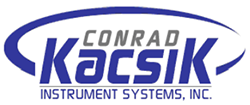Why SCADA Is Crucial for Aerospace Audit Readiness Under AMS2750 & Nadcap
If your facility performs heat treating in the aerospace industry, chances are you’re already familiar with AMS2750 and Nadcap. Both are designed to ensure aerospace components are heat treated consistently, safely and in compliance with exacting specifications.
Audit readiness for Nadcap is a core requirement for maintaining contracts and credibility in the aerospace sector. But compliance involves more than just following procedures; it requires extensive documentation, real-time monitoring, and traceable control over every aspect of your process.
That’s where modern SCADA (supervisory control and data acquisition) systems become indispensable. SCADA gives you the tools to collect, log and review data automatically, minimizing the chance of human error and ensuring your process stays within spec—every time. For aerospace suppliers aiming to meet AMS2750 and pass Nadcap audits with confidence, a robust SCADA system is essential, and we’ll cover why in this article.
A Brief Overview of AMS2750 & Nadcap
AMS2750
AMS2750 is the aerospace industry’s go-to specification for pyrometric requirements. It outlines the rules for how temperature sensors, instrumentation, system accuracy tests (SATs) and temperature uniformity surveys (TUS) must be managed in thermal processing operations. If your company heat treats components for aerospace clients, AMS2750 ensures your equipment consistently performs within acceptable limits—and that you can prove it with traceable documentation.
Nadcap
Nadcap, short for National Aerospace and Defense Contractors Accreditation Program, is a global cooperative accreditation program administered by the Performance Review Institute (PRI). It exists to standardize the auditing and approval process for aerospace suppliers. To earn Nadcap accreditation, companies must undergo rigorous audits to demonstrate that their processes—not just their end products—meet strict industry standards. One of those standards is AMS2750 itself.
How They Are Related
AMS2750 is just an industry standard, not an accreditation like Nadcap. This means you can be AMS2750 compliant without getting full Nadcap accreditation (which requires accreditation and follow-up audits). That said, Nadcap accreditation requires that you are AMS2750 compliant.
AMS2750 and Nadcap both require digital monitoring of operations, which is a key component of a modern SCADA system. In other words, SCADA is crucial whether you want to be Nadcap accredited or AMS2750 compliant.
A Quick Overview of SCADA
SCADA, or supervisory control and data acquisition, is an industrial automation system that gives operators centralized control over complex manufacturing processes. At its core, a SCADA system monitors, records and manages data from various equipment and sensors—enabling real-time visibility and control across thermal processing operations.
In a heat-treating environment, SCADA systems connect to furnaces, controllers, thermocouples, alarms and more. Through an intuitive interface—often a touchscreen or HMI (human-machine interface)—operators can view system status, control processes and automatically log critical data. This includes everything from setpoint changes and temperature curves to operator acknowledgments and batch-specific parameters.
Unlike older systems or manual logging methods, SCADA ensures all activity is recorded digitally, which is essential for compliance with both AMS2750 and Nadcap. It also introduces automation—reducing human error and allowing for repeatable, validated processes.
Ultimately, SCADA provides the transparency and traceability aerospace manufacturers need to meet today’s stringent audit and quality standards.
How SCADA Ensures You’re Ready for Nadcap Audits
Automated Data Collection = Audit Trail Integrity
SCADA systems automatically log every process variable—temperature readings, start and end times, equipment status, alarm conditions and operator inputs—all with digital time stamps. This creates a detailed audit trail that’s tamper-resistant and easily exportable, ensuring you can present exactly what an auditor needs without scrambling to find paperwork or handwritten notes.
Minimized Operator Error = Fewer Non-Conformances
With manual data entry, a single misstep can result in a non-conformance. SCADA systems reduce this risk by automating routine tasks and enforcing process rules. For example, if your process requires specific ramp rates or soak times, a SCADA system can be programmed to prevent cycle initiation unless parameters are correct—eliminating preventable errors before they happen.
This kind of built-in process control makes it easier to pass audits and avoid costly rework or downtime. It also gives you confidence that your operation is consistently compliant—without relying solely on operator memory or judgment.
Faster Response to Equipment or Process Anomalies
If a furnace drifts out of spec or a sensor fails, a SCADA system can alert your team immediately—often before a batch is compromised. Some systems even allow for remote diagnostics and control, letting engineers assess and address issues without being on-site. This rapid response helps you stay within Nadcap tolerances and avoid disruptions that could derail your audit readiness or production schedule.
Should You Upgrade Your SCADA System?
If your SCADA system is outdated—or if you’re still relying on manual processes—you could be risking more than just non-conformances. You may be missing out on opportunities to improve efficiency, reduce costs and drive long-term profitability.
Modern SCADA systems do more than just support audit readiness. They offer a range of operational benefits that can significantly improve efficiency and profitability, including:
- Streamlining day-to-day operations
- Reducing operator workload and training time
- Providing real-time visibility into your thermal processing
- Minimizing downtime and maximizing production of conforming materials
Put another way, a strong SCADA system can deliver improvements in your ROI.
At Conrad Kacsik, we design and implement custom SCADA solutions tailored to your equipment, your process and your compliance requirements. Whether you’re looking to upgrade an existing system or implement SCADA for the first time, our team has the engineering expertise and industry experience to deliver a solution that works—and keeps working.
Reach out and contact us today!







